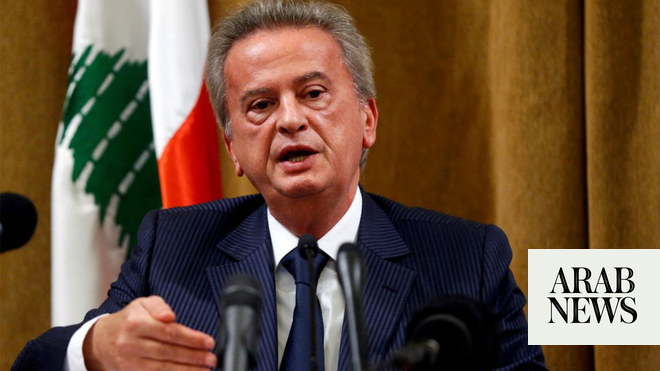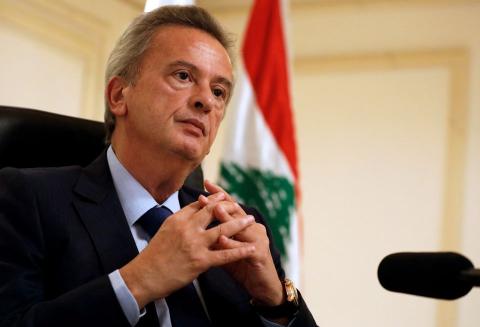
Central bank governor defends his record, denies he is to blame for financial crisis
Lebanese PM Diab blamed Salameh for currency crash
BEIRUT: Lebanon’s central bank chief came out fighting to defend his job on Wednesday in the face of a currency collapse, soaring inflation and stinging criticism from Hezbollah and its allies.
In a televised speech lasting nearly an hour, Riad Salameh defended his record, promised savers their money was secure, and blamed successive governments for financial profligacy.
"Yes, the central bank financed the state, but it is not the one that spent the money,” Salameh said. “We must know who did. There are constitutional and administrative institutions that have a mission to reveal their spending.”
Lebanese law required the central bank to finance the state, Salameh said. “The code states that when the government insists, the central bank provides finances. We respect the law.”
The Lebanese pound has lost more than half its value since October, and plunged this week to a rate of 4,500 pounds to the US dollar on the black market. Prices of food and other essentials have soared, and protesters took to the streets to demand an end to the financial meltdown.
A few hundred gathered again on Wednesday in the northern city of Tripoli. “I’m out in the street because I’m unemployed and I can no longer feed my three children,” said Muhammad Khalil, 34. “We’ve lost all our spending power and the state hasn’t got our back.”
A draft rescue plan this month estimated that retail banks had lost $83 billion, and proposed a temporary contribution from depositors to help make it up. Salameh said savers’ money was secure.
“There is absolutely no need for a haircut,” he said. “We confirm to the Lebanese that their deposits are there and are in the banking sector and are being used.” The central bank was still providing dollars for essentialimports at the official exchange rate, he said, and had nearly $21 billion in usable liquidity.
Nevertheless, Prime Minister Hassan Diab and officials from the Iran-backed Hezbollah group have blamed Salameh for the currency crash, and the attacks continued on Wednesday. Salameh’s speech did not provide clear answers, said Fayssal Karame, a Hezbollah-allied member of parliament. "He did not justify the monetary policies which he has followed for decades and which have proved to be failing.”
Economist Issam Jurdi told Arab News: “The governor of the central bank should not have financed a bankrupt state. The state has been bankrupt for 30 years, and he is still providing it with funds. This has led to triple bankruptcy — the state, banks, and the central bank.”
Jurdi called for “early parliamentary elections and a fair judiciary to be able to hold the corrupt accountable.”











